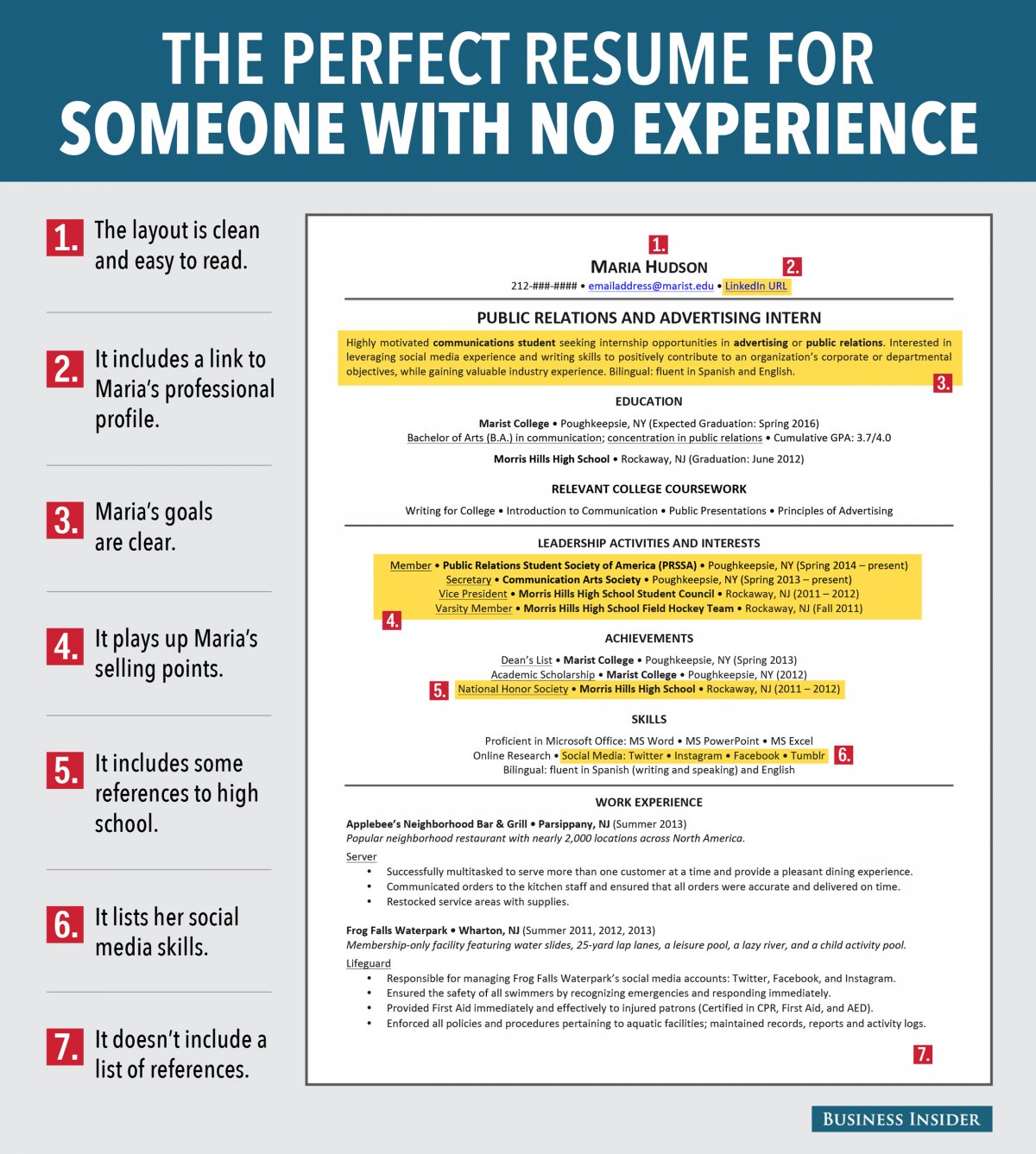Writing your very first resume can be a daunting process. And it doesn't help to know that recruiters spend an average of six seconds reviewing a resume
before they make the initial decision on candidates, according to
research conducted by TheLadders, an online job-matching service for
professionals.
"Many students don't know what should and should not be included in
their first resume," says Amanda Augustine, a career expert at TheLadders.
"While there are no hard and fast rules when writing a resume, it
really depends on what content you have to work with, there are some
preliminary guidelines all students or new professionals should follow."
She says the most important things to
think about when you're creating your first resume are your job goals
and your audience. "Ask yourself: If I handed the resume to someone who
knew nothing about my college major or career direction, could they
easily identify the type of role I'm targeting and why within the first
30 seconds?"
To get a clearer picture of what makes a resume great, we asked
Augustine to create a sample of an excellent one for someone with little
to no experience.
While your resume may look different, depending on the industry you're
in, the one below should serve as a useful guide for entry-level
professionals with very little work experience:

What makes this an excellent resume for someone with no experience? Augustine outlines the following reasons:
1. The layout is clean and easy to read.
The same font type is used throughout the document. Dates and locations
are consistently represented, so it's easy to scan and pick out the
important information. "In addition, the headers and main sections of
information are centered on the page, which TheLadders eye-tracking
study revealed is how recruiters tend to scan resumes," she says.
2. It includes a link to the job seeker's professional profile.
While it may seem a little premature, it's important for students to
develop good social media habits from the get-go. "Create one
professional profile dedicated to your future career," she suggests. "If
you're studying to work in a more creative field, consider developing
an online portfolio to display as part of your contact information. In
addition, increase the security settings on your personal accounts so
they're hidden away."
3. The job seeker's goals are clear.
Maria's professional title and summary at the top of the resume clearly
indicate her interest in securing an internship in advertising or public
relations. "If her resume was passed along to someone by a friend, the
reader wouldn't have to guess," Augustine says. "While Maria's personal
brand is still under development, her summary references the value she
already brings to the table: the relevant degree she's pursuing, her
experience using social media, and her writing skills."
4. It plays up the job seeker's selling points.
Maria is pursuing her first internship and doesn't have any relevant
work experience to speak of. "As a result, we've shifted around the
components within her resume to showcase her strengths: her relevant
coursework, leadership activities, achievements, and skills," Augustine
explains. "Her work experience is moved to the bottom of the resume
because it's not directly tied to her internship goals." However, it's
important to include this information because it demonstrates Maria's
work ethic and skills.
5. It includes some references to high school.
If you're pursuing your first internship, it's all right to incorporate
some information about your high school career. This includes any
awards, honors, or scholarships you may have received or sports you may
have played. If you were valedictorian or salutatorian of your class, or
you held an office in an honor society or relevant club, include it in
your first resume, Augustine says. "This information paints a picture
for the reader of a well-rounded student who was active in and out of
school."
6. It lists her social media skills.
"If you grew up with Facebook and other social media channels, it may
seem silly to add these to your resume - doesn't everyone know their way
around Instagram today?" she says. "But the reality is that this
knowledge is an asset to many employers, and not everyone in the job
market possesses it." If you're targeting internship opportunities in
marketing, public relations, advertising, journalism, or even customer
service, include these skills in your resume. Many employers are looking
for interns to help manage their online brands; adding these skills to
your resume will help them find you.
7. It doesn't include a list of references.
You do not need a line at the bottom that reads: "References available upon request."
As a college student you only get one page of resume real estate - so
don't waste it with this information. "Employers don't ask for that
information until you make it to a face-to-face interview, and they know
you'll provide it if they request it," she says.
It's important to remember that experience isn't everything - and,
luckily, employers filling internships don't expect you to have much of
it just yet, Augustine says. "However, they do want to see an active
student who has demonstrated a genuine interest in their position."
So, when you sit down to write your first resume, try to think about
your previous jobs in a new light. "If your experience seems unrelated
to the internship you want, think about what skills you've practiced or
learned that could be applicable," she says. "For instance, as a
waitress you're sure to develop skills in customer service, sales, and
multitasking, all of which could be very valuable to a potential
employer."


